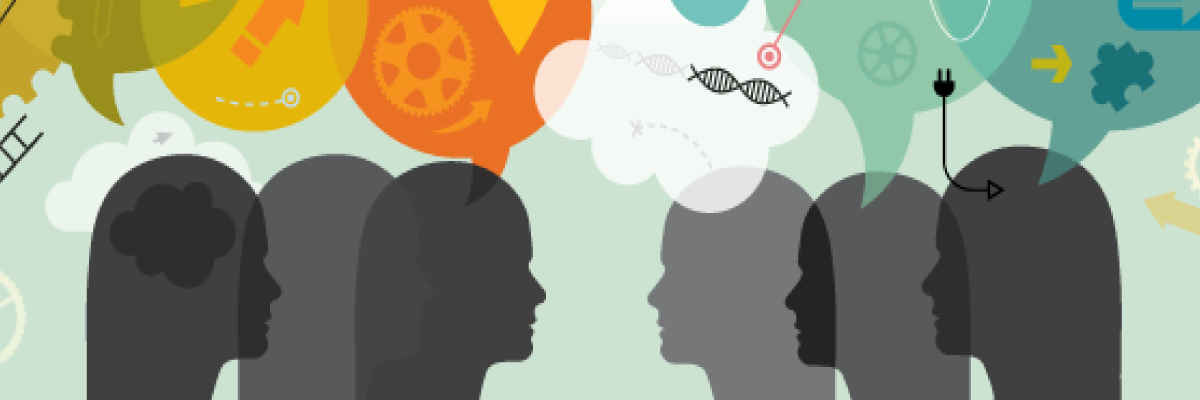
Women in Psychology: An Uneven Playing Field
Women in the field have come so far—and have some distance yet to go. Visit Page
Women are less likely to ask questions during Q&A session at academic conferences. They may fear professional backlash, new research suggests. Visit Page

An organizational emphasis on intellectual superiority can contribute to a “masculinity-contest culture” that may discourage women from jumping in. Visit Page

A psychological study suggests a way to keep gender stereotypes from discouraging girls' persistence in science activities. Visit Page

Pretend play may help increase girls’ persistence in science activities by psychologically distancing them from negative gender stereotypes about their STEM abilities. Visit Page

How did attitudes about race, sexuality, age, or disability change in the last decade or so? Researchers examined more than 7 million implicit and explicit tests for an article published in Psychological Science. In this conversation, APS’s Ludmila Nunes speaks with APS member Tessa Charlesworth (Harvard University), the article’s lead author. Visit Page

This framework highlights how situational configurations can interact with mental processes to create the conditions that enable or discourage sexual assault on college campuses. Visit Page

In observance of the 2022 celebration, APS has collected and summarized flash talks from our 2021 Virtual Convention that discuss the effects of systemic sexism, gender stereotypes, and discrimination against women to reiterate the need for gender equality and acceptance. Visit Page

If a guy acts like a jerk to other men, he may seem less sexist than he actually is, according to new research in the journal Psychological Science. Visit Page

A culturally underprivileged childhood increases a person’s risk of being less physically active in adulthood. This risk is greater for women than for men, according to new research published in the journal Psychological Science. Visit Page

Okie Nwakanma received first prize for her upcoming research on how Black women use emotional-approach coping to deal with gendered racism. Visit Page

Reading to children offers many benefits. A new study reveals, however, that popular storybooks are an underrecognized source of gender stereotypes, and children's books often contain stronger gender biases than texts for adults. Visit Page

Campbell Leaper with UC Santa Cruz talks about gender during childhood and the importance of play during these formative years. Visit Page

New research finds no significant correlation between a woman’s sexual behavior and her self-esteem. Visit Page

Women’s cognitive functioning past middle age may be affected by the degree of gender equality in the country they live in, according to new findings from Psychological Science, a journal of the Association for Psychological Visit Page

Gender gaps for women in psychological science are closing, yet some remain, and more work is needed. Visit Page

In September 2020, APS published the first-ever gender parity review of psychological science: "The Future of Women in Psychological Science." The story behind this study, as told by some of the authors, is a compelling examination of personal experiences and observations. Visit Page

The stigma associated with prejudice against women and people of color seems to transfer from one group to another, a series of experiments shows. Visit Page

Research suggests that stereotypes about women and risk taking can influence how women actually make financial decisions. Visit Page

New research suggests that the metaphors we use to frame innovations can bias our perceptions of who is capable of coming up with the next big idea. Visit Page

Working mothers are often offered lower salaries and fewer leadership opportunities compared to working fathers, but this penalty can be reduced by framing women as “breadwinners.” Visit Page

Ranked chess players' data suggest that women playing against men perform better than expected based on official ratings Visit Page

Researchers find that people are likely to be judged more harshly for mistakes if they're in a high-powered job that's not normally associated with their gender. Visit Page

Faces that are seen as competent are also perceived as more masculine, research reveals. Visit Page

Women leaders who show dominance may face backlash -- but data suggest that implicit forms of dominance, such as body language or facial expressions, may not harm women’s status. Visit Page

Researchers wondered if the "queen bee" behavior—refusing to help other women and denying that gender discrimination is a problem, for example—might be a response to a difficult, male-dominated environment. Visit Page

Fostering gender-blind ideologies may offer one short-term aid as institutions continue to grapple with gender-parity issues. Visit Page

A “safe" retirement investment put this cognitive psychologist’s lifetime of learning to the test. Visit Page

A psychological study suggests a potential way to minimize the impact that gender bias can have on women’s career advancement. Visit Page

Findings suggest that the work and achievements of men tend to be evaluated as more creative than similar work and achievements produced by women. Visit Page

Research indicates that the common American assumption that behavior is a product of personal choice fosters the belief that opportunities are equal and that gender barriers no longer exist in today’s workplace. Visit Page

People tend to project their own level of interest onto prospective partners. This reality seems to explain why men and women misperceive a partner's sexual interest. Visit Page

A team of psychological scientists hypothesized that people’s deep-rooted beliefs about gender roles may be slower to change than the major behavioral shifts evidenced within society and the workforce. Visit Page

Psychological scientists find that a bit of schmoozing may help men—but not women—walk away from a negotiation with a better deal, as well as better long-term business relationships. Visit Page

Psychological researchers like APS Fellow Naomi Ellemers are applying the scientific understanding of implicit bias to address discrimination in law enforcement, medical, and workplace settings. Visit Page

Young children are more likely to attribute mental states to characters that belong to the same group as them relative to characters that belong to an outside group. Visit Page
